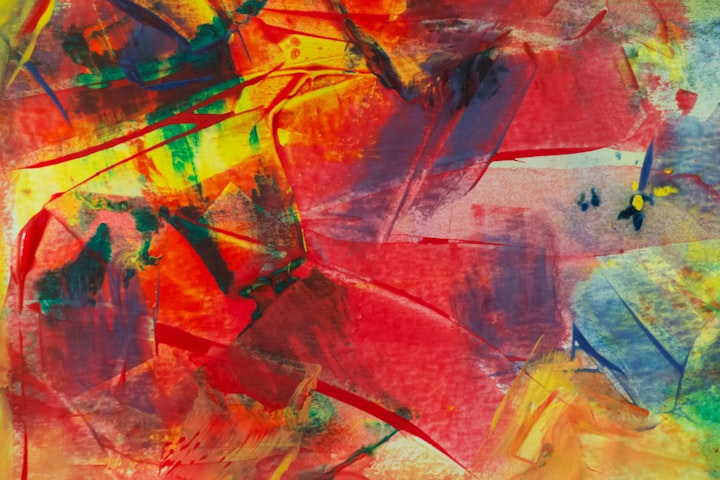Beginner's Guide: Deepening Creativity and Skill
Do I really have to do that?

"How do I get good at art/writing?""How did you get so good?""I can't draw... I can't write...""I suck.""How do you do that?"
At some point you've probably heard one of these questions, either from someone else, or your own lips. I know I've said and heard every single one on multiple occasions.
As an artist, I can find it easy to question my abilities, either where they are currently, or where they are going. "Will I ever be as good as I want to be?" Let's start blunt: there is a high chance you will never be fully satisfied with anything you create; that is the way of creative work. But, there are ways to boost enthusiasm, drive, and creativity of your work so you can cringe a little less.
1. Routine
Even through the darkest times, when you just want to rip your page, or backspace every word, you need to keep going.
I know, it seems pretty basic, and annoying to hear. As someone who has gone through spurts of not creating for months on end, and then trying to create afterwards, I really can say, keeping your skill exercised is crucial.
A while back, I started writing daily creative writing posts, as a challenge to myself. I then went to do a weekly illustration challenge, and multiple Inktobers. Some things it showed me were:
- First off, the amount it bettered my skills was immeasurable. I can barely handle reading some of my first posts, or looking at some of my first images from the challenges versus my later ones. Even if you are not actively seeking new techniques, or getting critiques, the act of 'doing' consistently will make it easier.
- Secondly, it showed me that even when I felt like there was no way I was going to be able to get out of whatever creative funk I was in that day, I still could (I'll talk about some methods in a bit).
- Daily is too often for me. I could manage for about two years with the writing, and then I just fully burnt myself out. Though I need to be creating frequently, I need more akin to 1-3 days per week so I can maintain it.
- I need a social contract. For me, I tend to be able to convince myself to take days off and put things off to the next day. So, I did my challenges online. Even though I started with very few followers that would even be noticing if I did it or not, that pressure of even having even one follower convinced me that I really do need to keep to whatever I promised myself.
The trick about creating a routine for yourself is that it needs to not be too much. If you try and push yourself too far from the start, it will be discouraging.
It needs to be maintainable.
2. Resources
Nothing is new, it is just a new combination of old.
Even if writing your first few pieces, or drawing a certain amount of pieces you are bursting with ideas, eventually you will probably hit a brick wall.
I've now heard it from a few different people, but for whatever reason, it really hit me harder this last time that as a creative: it is impossible to create anything that is entirely new, it is your job to find ways to combine in new ways.
In some ways, hearing that crushed my creative spirit, making me feel like moping and that it's useless to even try. Then, on the other end, I realized how much pressure it took off. It isn't the job of the creative to be a wizard. It is your job to see what is around you, and to take bits here and there and remix them into something 'new.'
When I did my daily creative writing, one of my biggest things was to Google surrealist photography. What I didn't realize is that, in many regards, a lot of that photography is just slightly unlikely things together. It gave me that initial spark for what I could put together.
For the weekly illustration challenge, I had a list of words in front of me, one per week. I then usually just went onto Pinterest, following the suggested images, almost as a game of telephone with myself until I reached some cool image that was completely unrelated I could use as fodder for what weird combination I could make.
Then, for my one Inktober, I found a theme; for me I did Yokai, because they are fairly unknown to me, and have a lot of history. I put them all in a randomizer, and forced myself to create the first one I got on random each day. I can not stress enough how useful mythology and lore can be (especially from different cultures than your own) for sparking new ideas. Beyond that, looking into even just different jobs or fashion can be a great start.
3. Critique
As humans, we are flawed.
I have a history of being defensive with my work. Sometimes, when I'm really tired, I definitely still am. But, learning how to take critique and use it is one of the best things you can do for yourself.
Honestly, I would suggest both practicing taking and giving critique, and doing so kindly.
I'm going to start with giving others critique. Specifically in creative writing, there are skills I have internalized better when going through someone else's piece than trying to implement it myself.
When going through a piece, I actively would seek both the negative and the positive. It can both help make sure that if you actually give that critique there is something that can bring up their spirits, and make sure you have an eye for what is working that you can implement (even if just the littlest thing).
Systematically going through for each skill you need to actively analyse, without splitting your attention is crucial. Each aspect has equal importance. Also, you need to remember, you have to have reasoning behind every comment. The act of figuring out why something isn't working helps more than just realizing something doesn't work.
Why is more important than what.
Receiving critiques. Hopefully whoever is critiquing your work is constructive. And, if they are not, it's best to analyse for the what they may have not found for you. Then, decide if that has a valid what, or if there is another issue that is resulting in another part seeming flawed.
If there is something you feel strongly about having in your piece, rationalize it, but just for yourself. Then, figure out what other issues you can fix to make that 'something' work for you.
Even if you don't use some of the suggestion, it is best to just thank for the time they put in critiquing, and understand that it isn't personal. (I say this as someone who used to take critiques VERY personally. Hopefully you are better than I was and don't even need to hear this.)
Conclusion
I could go on for hours for other suggestions, but here are my first three. I hope they can get you started. I hope to make a sequel, and maybe more succinct version soon. Feel free to ask me questions!
What ways have really helped you better your skills and up your creativity?
About the Creator
'Toto' (Aleksina Teto)
A Canadian designer, writer, typographer, and artist.







Comments
There are no comments for this story
Be the first to respond and start the conversation.